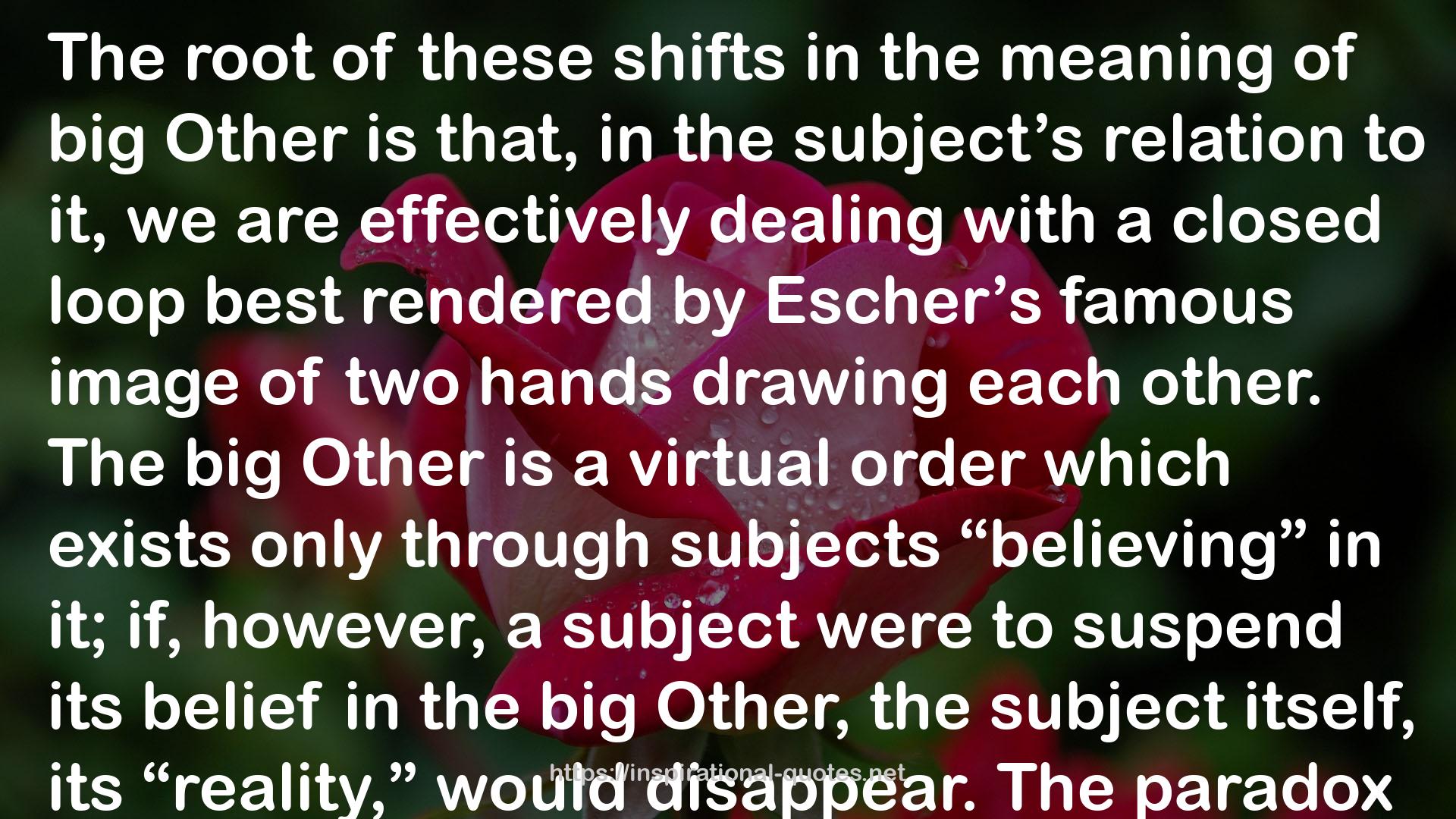" The root of these shifts in the meaning of big Other is that, in the subject’s relation to it, we are effectively dealing with a closed loop best rendered by Escher’s famous image of two hands drawing each other. The big Other is a virtual order which exists only through subjects “believing” in it; if, however, a subject were to suspend its belief in the big Other, the subject itself, its “reality,” would disappear. The paradox is that symbolic fiction is constitutive of reality: if we take away the fiction, we lose reality itself. This loop is what Hegel called “positing the presuppositions.” This big Other should not be reduced to an anonymous symbolic field—there are many interesting cases where an individual stands for the big Other. One should think not primarily of leader-figures who directly embody their communities (king, president, master), but rather of the more mysterious protectors of appearances—such as otherwise corrupted parents who desperately try to keep their child ignorant of their depraved lives, or, if it is a leader, then one for whom Potemkin villages are built. "
― Slavoj Žižek , Less Than Nothing: Hegel and the Shadow of Dialectical Materialism
